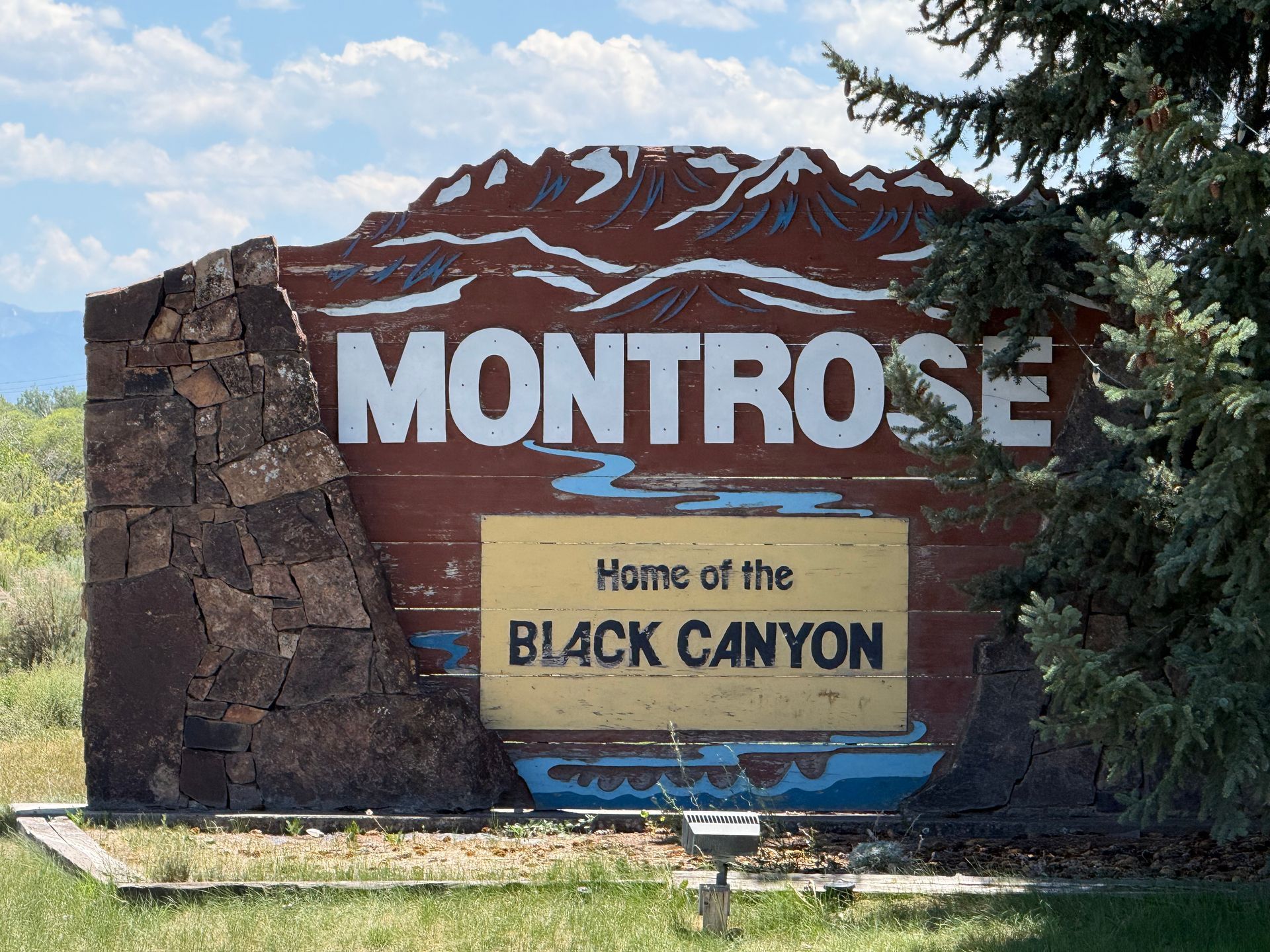Resolving family legal issues can be stressful and complicated. Emotions run high, and it can be difficult to see the matter clearly. You need objective legal counsel from an experienced family attorney. Call the Law Office of John Williams in Charlotte, NC. John Williams can assist you if you're filing for divorce. He also handles child custody and guardianship cases.
Arrange for a consultation with a divorce attorney in Charlotte, NC today.
Montrose County

Recall Campaign Sinks to New Lows:
Preying on the Vulnerable in Montrose County
A Toxic Undercurrent in Community Spirit
Montrose County, nestled in the picturesque landscapes of western Colorado, has long been a beacon of small-town camaraderie and mutual support. Residents here take pride in their tight-knit communities, where neighbors lend a hand during harsh winters, volunteer at local events, and rally together for causes that matter most. Local governance has traditionally centered on practical, everyday concerns such as improving health care access, maintaining roads and infrastructure, and fostering economic stability amid the region's agricultural and tourism-driven economy. However, in recent months, a disturbing shift has occurred. A toxic undercurrent has seeped into the fabric of this unity, eroding the trust and goodwill that define Montrose. At the heart of this discord is the "Recall Commissioner Scott Mijares" committee. This group, which claims to be motivated by issues of transparency and fiscal responsibility, has instead transformed into a predatory operation that deliberately targets the county's most vulnerable residents. This goes beyond typical political maneuvering. It represents exploitation disguised as grassroots activism, and it threatens to fracture the very community spirit that Montrose holds dear.
The Health Fair Outrage
The most recent and egregious example of this troubling behavior took place at the annual Montrose Health Fair, held in early August 2025. This event, organized by local health organizations and county services, serves as a vital lifeline for many families. It offers free medical screenings, educational workshops on managing chronic illnesses like diabetes and heart disease, and connections to resources for mental health support and nutritional guidance. Attendees often include low-income families, elderly individuals on fixed incomes, and those grappling with serious medical hardships. They arrive seeking solace, information, and practical help, not political entanglements. Yet, amid the booths offering blood pressure checks, flu vaccinations, and consultations with health professionals, recall petitioners set up shop. These volunteers, who present themselves as dedicated community activists working for the greater good, aggressively approached people in lines and waiting areas. They thrust petitions into hands, launching into impassioned speeches about alleged misconduct, often ignoring obvious signs of disinterest, discomfort, or outright distress.
One particularly poignant account came from a witness who observed a young mother navigating the fair with two toddlers in tow. She was there to inquire about affordable pediatric care options and perhaps secure some free vaccinations for her children. Instead, she found herself cornered by a persistent volunteer who blocked her path and refused to back down, even as the mother politely declined. "They don't want anything to do with what you're selling," the mother reportedly snapped, her voice laced with frustration as she tried to shield her children from the intrusion. This sentiment resonated with numerous other attendees. Elderly participants, some using walkers or canes, reported feeling overwhelmed by the high-pressure tactics. One senior citizen, who preferred to remain anonymous, shared that he was approached while waiting for a hearing aid consultation. He felt pressured to sign just to make the solicitor leave, highlighting how such encounters can exploit momentary vulnerabilities. These stories paint a picture of an event meant for healing and support being hijacked for political gain, turning a space of compassion into one of coercion.
The Recall Effort's Pattern
This incident at the health fair is not an anomaly. It fits into a broader pattern established by the recall effort, which officially began in July 2025 when organizers submitted their petition to the Montrose County Clerk and Recorder. The campaign is spearheaded by a bipartisan coalition that includes notable figures such as former county officials Phoebe Benziger and Ray Langston. These leaders have positioned themselves as watchdogs, accusing Commissioner Scott Mijares of a series of governance failures. Specifically, they claim he violated Colorado's Open Meetings Law by conducting closed-door discussions that excluded public input. They also point to his role in the forced resignation of the county manager and attorney, which they argue led to excessive severance packages and legal fees amounting to more than half a million dollars in taxpayer money. Additional grievances include his mishandling of the public health director position, where they allege he created a toxic work environment that drove key staff away. Furthermore, the committee criticizes Mijares for interfering in critical infrastructure projects, such as the development of the North Campus facility, which is intended to expand county services like emergency response and administrative offices.
To gather the required signatures, approximately 25 percent of the voters from the most recent election, the committee has employed a multi-pronged strategy. Volunteers are stationed at various public locations throughout the county, from grocery stores to community centers. They have also launched email campaigns targeting registered voters and conducted door-to-door canvassing in neighborhoods. While these methods are standard in political organizing, the choice to infiltrate a health fair elevates the approach to a new level of insensitivity. Reports from residents indicate that similar aggressive tactics have been used at other events, such as farmers' markets and senior citizen gatherings, where people are less likely to be prepared for political solicitation. This pattern suggests a deliberate strategy to catch individuals off guard, maximizing signature collection at the expense of ethical considerations.
Examining the Grievances
Are these grievances against Commissioner Mijares entirely without merit? Mijares was elected in 2024 amid widespread calls for reform in county administration. He campaigned on promises to challenge entrenched bureaucratic interests and prioritize efficiency in government spending. Since taking office, he has indeed sparked controversy through bold decisions, such as restructuring departments to cut redundancies and advocating for stricter oversight of public funds. Supporters, including the Montrose County Republican Party and various local business leaders, portray him as a principled figure who is unafraid to confront outdated practices. They argue that the resignations of the county manager and attorney were necessary steps to address inefficiencies and that the associated costs, while significant, will yield long-term savings. Mijares himself has defended his actions, stating in public statements that his interventions in projects like the North Campus were aimed at ensuring accountability and preventing cost overruns.
However, critics maintain that his methods have fostered division rather than progress. The recall petition lists specific instances of alleged misconduct, but upon closer scrutiny, some claims appear exaggerated or selectively presented. For example, the Open Meetings Law violations are based on interpretations of meeting protocols that Mijares' team disputes as minor procedural oversights rather than intentional secrecy. The "toxic workplace" narrative stems from anonymous complaints, which supporters dismiss as resistance from those opposed to change. This back-and-forth underscores the polarized nature of the debate, where facts are often filtered through partisan lenses. What remains clear is that while legitimate questions about Mijares' leadership exist, the recall committee's response has amplified these issues in ways that prioritize sensationalism over substantive dialogue.
Crossing Ethical Lines
The true problem lies not in the grievances themselves but in the methods employed to advance the recall. By targeting attendees at the health fair, the committee preys on individuals who are already burdened by pressing concerns. Many of these people face mounting medical bills, navigate complex insurance systems, or manage family members with chronic health issues. Their focus is on immediate survival and well-being, not on dissecting local political scandals. Approaching them in such a setting exploits their vulnerability, turning a moment of need into an opportunity for political leverage. These are not engaged voters attending a town hall meeting or debate; they are ordinary residents seeking essential services, often in states of physical or emotional fatigue.
Such tactics mirror broader criticisms of recall efforts across the United States. In states like California and Wisconsin, similar campaigns have faced backlash for aggressive petitioning that borders on harassment, including following people to their cars or repeatedly calling homes. In Montrose, the health fair incident feels especially callous, akin to predatory sales pitches at senior centers or charity galas, where high-pressure techniques overwhelm those least equipped to resist. Volunteers, trained to collect signatures efficiently, may view these interactions as necessary, but they overlook the human cost. The result is a erosion of trust, where community events become battlegrounds rather than safe havens.
Undermining Legitimacy
This predatory approach ultimately undermines the recall campaign's legitimacy. If the issues of transparency violations, fiscal waste, and workplace toxicity are as compelling as claimed, why not pursue them through more honorable means? Open forums, televised debates, or in-depth media coverage could allow for informed public discourse. Instead, the committee has been accused of stifling dissent in ways that echo their own criticisms of Mijares. During recent county meetings, public comment periods were reportedly shortened, leaving residents feeling marginalized and unheard. In response, Mijares has launched his own website, where he encourages those who signed the petition under duress to withdraw their names. He also provides counterarguments, labeling the committee's claims as misinformation designed to mislead.
This tit-for-tat dynamic has created a cycle of accusation and defense, further polarizing the community. Residents who might otherwise engage thoughtfully are turned off by the theatrics, questioning whether the recall is driven by genuine concern or personal vendettas. The committee's tactics suggest a desperation that weakens their moral standing, making it harder for even sympathetic observers to fully endorse their cause.
Democracy or Distraction?
Proponents of the recall might counter that such efforts are fundamental democratic tools, designed to hold elected officials accountable between elections. In Colorado, recalls require a threshold of signatures to trigger a special election, potentially slated for November 2025 in this case. This mechanism empowers citizens to address perceived failures promptly. However, true democracy relies on integrity and fairness, not on ambushing unsuspecting individuals. Montrose County faces pressing challenges that demand unified attention: recovering from recent wildfires that devastated homes and landscapes, addressing budget shortfalls exacerbated by inflation, and expanding health access in rural areas. Amid the recall drama, positive steps like the new requirement for separate accounting of public safety sales tax funds demonstrate that governance can persist. Yet, the ongoing circus risks distracting from these priorities, siphoning energy into division rather than solutions.
A Call for Compassion Over Coercion
In the end, this recall campaign threatens to deepen existing divisions in a community already strained by rapid population growth, economic pressures from rising living costs, and the lingering effects of the pandemic. Voters chose Mijares to introduce change and disrupt the status quo. If he is indeed falling short, the regular election cycle provides an opportunity for accountability without resorting to underhanded signature hunts at vulnerable venues like health fairs.
To the recall committee: If your cause is truly just, persuade through facts, evidence, and respectful engagement. Win hearts by building consensus, not by exploiting the less fortunate. Montrose residents, remain vigilant. Protect your neighbors from aggressive solicitors, question motives behind petitions, and insist on politics that elevates rather than exploits. The strength of our county has always been rooted in compassion, collaboration, and a shared commitment to one another's well-being. Let us preserve that legacy by choosing unity over coercion, ensuring that our community spirit endures for generations to come.
Michael J Badagliacco, “MJB”
Michael is a United States Air Force Veteran, father of five and grandfather of three, passionate about this country and the Constitution.
Editor-in-Chief, Colorado DOGE Report.
